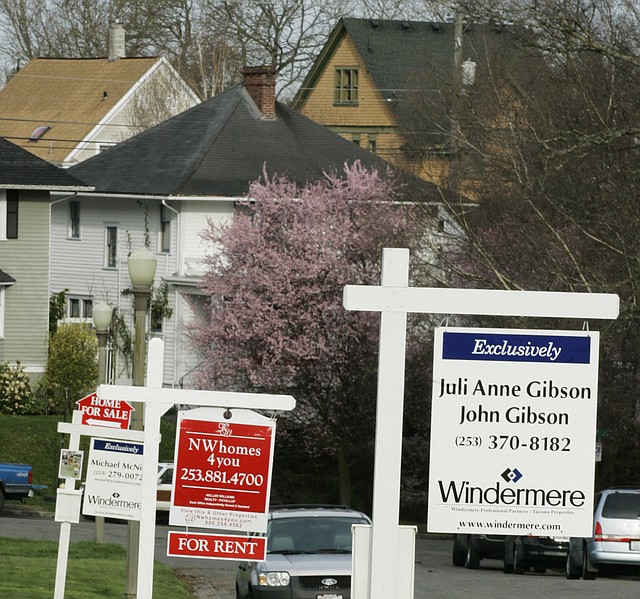Number of houses, vacancies up, census figures show
Monday, June 6, 2011
New census data shows there are more places for people to live around the tri-state area than a decade earlier, but a higher percentage of houses and apartments also are sitting empty.
The number of homes and apartments in places such as Collegedale and Ringgold, Fort Oglethorpe and Dalton in Georgia climbed by more than 20 percent from 2000 to 2010, according to the data. The numbers also show, however, that more than 10 percent of housing units are vacant in Chattanooga, Red Bank, Collegedale, Rossville, Chickamauga, Dunlap, LaFayette and other communities.
Robert Nodes, a spokesman for the Chattanooga Association of Realtors, said neither set of numbers surprised him.
Realtors have touted big growth in new homes in North Georgia as well as northern and eastern Hamilton County for years.
"That is where the growth is," Nodes said.
For the vacancy rates, Nodes said much of the increase is probably from foreclosures during the recession in the last two or three years.
"I don't think anybody is terribly surprised by vacancy," he said.
Doug Bachtel, a demographics expert with the University of Georgia, said the news is a mixed bag because new homes indicate a strong economy, but increasing vacancies are bad news.
Bachtel said vacant-home figures are alarming but common during a recession. He said empty buildings can cause neighborhood deterioration and falling property values and become a "breeding ground for crime."
"That's really a serious trend," he said. "It can really lead to a downward spiral."
But the bump in housing units shows growth that means people want to move to the area to follow jobs, he said.
"That data really substantiates a growing economy," Bachtel said. "You're not going to see one without the other."
Part of the reason vacancies could be on the rise is families with older parents or adult children sharing homes to pool income, Bachtel noted.
The numbers also indicate that builders probably overbuilt when times were good, he said.
Stanley Richardson, past president of the Home Builders Association of Dalton, said Bachtel's conjecture is spot on. Houses and complexes sprouted all over Dalton and other areas in the first seven years of the decade. Since the recession began, Richardson said, membership in the association has dropped by about 60 percent as builders have gone bankrupt or gotten out of the field.
"Everybody and their brother got into home building," he said. "They built and built and built. Everybody thought this was going to last forever."
